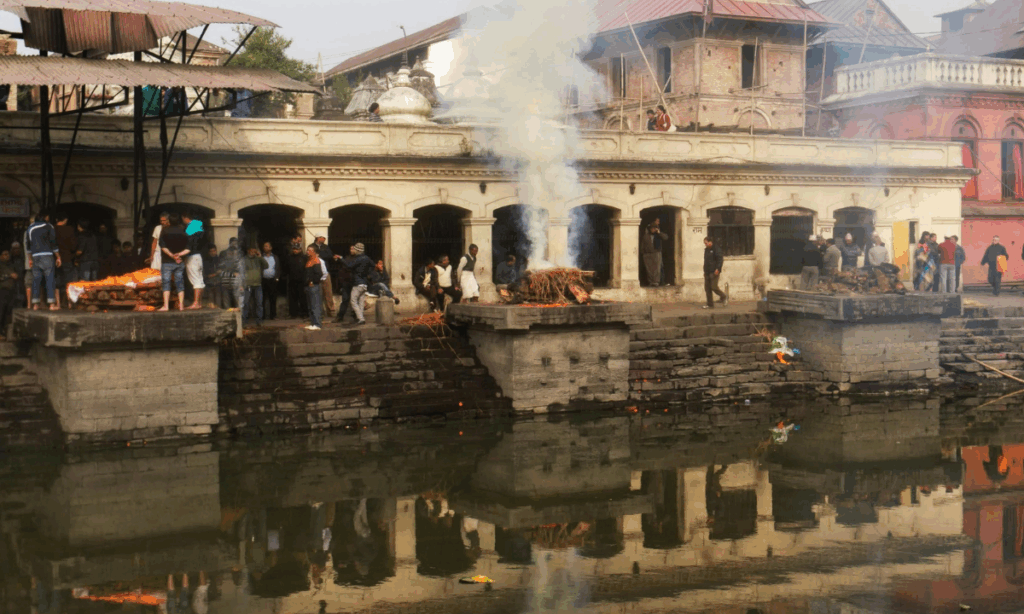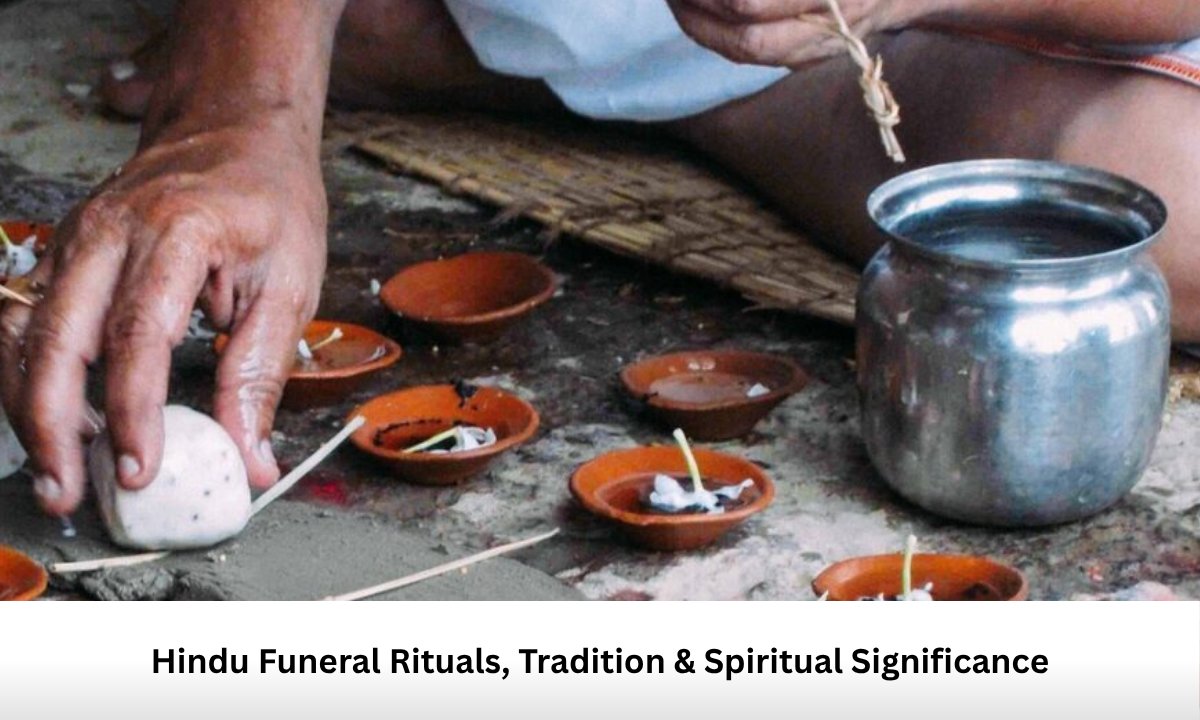Hindu funerals have always been deeply rooted in spirituality, culture, and tradition. They are not just ceremonies of farewell but sacred journeys that help the departed soul transition towards peace.
From cremation to Hindu death rituals and other sacred practices, every step is meant to honour the cycle of life and rebirth. Today, with professional funeral services in India like Kaashimukthi assisting families, these age-old customs are carried out with devotion and dignity.
In this blog, we explore the significance of Hindu funerals and the rituals associated with them, some you may know and others you may not have heard of before.
The Spiritual Foundation of Hindu Funerals

At the heart of Hindu funeral rituals lies the belief in reincarnation and moksha, or liberation. The body is seen as temporary, while the soul is eternal. The funeral, therefore, is not only about honouring the deceased but also about helping the soul move on peacefully.
Every ritual, from the chanting of mantras to the lighting of the pyre, symbolises purification, detachment, and release. These practices also provide family members with a structured way to grieve and find solace in tradition.
Important Hindu Death Rituals
The sequence of Hindu death rituals varies slightly by region, but certain core rites are universally followed.
| Ritual | Meaning | Purpose |
|---|---|---|
| Antim Sanskar rituals | The last rites | Purify and release the soul |
| Hindu cremation | Burning of the body | Transform the body back into elements |
| Asthi Visarjan | Immersion of ashes | Returning remains to sacred waters |
| Pind Daan | Offering of rice balls | Feeding and honouring the departed |
| Shraddha ceremony | Annual ritual | Remembering ancestors and seeking blessings |
The Process of a Hindu Death Ceremony
A Hindu death ceremony typically begins with preparing the body. Relatives clean, anoint, and dress the deceased in fresh clothes, often white. The forehead is marked with vibhuti (sacred ash), symbolising purity.
Next comes cremation, where the eldest son or closest male relative performs the rites. Fire is considered sacred in Hinduism, and cremation signifies the final purification of the physical body. This step is central to Antim Sanskar rituals, representing the cycle of life, death, and rebirth.
After cremation, the family collects the ashes for Asthi Visarjan, which is usually done in holy rivers such as the Ganga, Yamuna, or Kaveri. This ritual signifies merging the departed with cosmic elements.
Post-Death Rituals: Pind Daan and Shraddha
The journey of Hindu funerals does not end with cremation. Several after death rituals continue over days and even years.
- Pind Daan is one of the most important. Here, rice balls mixed with sesame seeds and ghee are offered to provide spiritual nourishment to the soul.
- The Shraddha ceremony is performed on the 10th, 12th, or 13th day and then annually. Families honour ancestors, seek blessings, and reaffirm the bond between generations.
These customs emphasise the Hindu view that love and duty extend beyond physical life.
Role of a Funeral Director in Hindu Funerals
In earlier times, families and community elders guided all rituals. Today, professional guidance has become invaluable. A funeral director plays a key role in helping families arrange everything from funeral services in Bangalore to ensuring the rituals align with tradition.
For example, many urban families may not have easy access to sacred rivers for Asthi Visarjan. Here, organised funeral services in India offer assistance by coordinating priests, transport, and rituals at designated places.
Tip: When choosing a service provider, ensure they understand regional customs, since Hindu final rites can vary between North and South India.
Funeral Services and Cremation in India
With the demands of modern life, families often face challenges in arranging traditional rituals. This is where dedicated providers of funeral services in India help bridge the gap between ancient tradition and today’s needs.
- In cities, cremation services in Bangalore and other metros arrange everything from wood for the pyre to floral decorations.
- Support is extended beyond cremation, covering rituals such as Pind Daan and the Shraddha ceremony.
Such services ensure rituals are performed with reverence while easing the burden on grieving families.
Final Thoughts
Hindu funerals are not merely ceremonies of grief; they are sacred rituals of love, duty, and spiritual release. From Antim Sanskar rituals to Pind Daan and the Shraddha ceremony, every custom reinforces the eternal connection between the living and the departed. With the growing availability of professional funeral service providers in India like Kaashimukthi, families can uphold these traditions with dignity and peace of mind.
At Kaashimukthi, we believe that honouring loved ones with care and devotion ensures their journey towards peace continues seamlessly.
Frequently Asked Questions
1. What is the significance of Hindu cremation?
Hindu cremation is considered a sacred rite that symbolises purification and the soul’s release from the physical body. By offering the body to fire, one of the five elements, the ritual helps the soul progress on its journey towards peace, rebirth, or liberation.
2. Why is Asthi Visarjan important?
Asthi Visarjan, the immersion of ashes in holy rivers, is one of the most important Hindu death rituals. It signifies the return of the physical remains to nature while spiritually ensuring the departed soul attains peace, purification, and connection with the eternal cosmic elements.
3. What is performed on the 13th day after death?
On the 13th day, families perform the Shraddha ceremony, marking the conclusion of the mourning period. Offerings and prayers are made for the departed soul’s peace, while family members seek blessings. This ritual also symbolises the return to normal life after loss.
4. Can funeral services help with rituals outside the city?
Yes, modern providers of funeral services in India support families with arrangements beyond their city. They coordinate transportation, priests, and resources for rituals such as Asthi Visarjan or Pind Daan at sacred places, ensuring traditions are upheld seamlessly even across regions or pilgrimage sites.

Madhu is an Entrepreneur, a Mentor, a Writer and an Aspiring Car Race Driver. He is Deeply passionate about leveraging Technology and Human Centred Design to make complex care and End of Life Planning easier. With the ultimate aim of Improving the quality of Life in the Twilight years. Madhu is highly educated and Alumni of IIM-Bangalore, Sikkim Manipal University and Bangalore University besides a Rich Industry Experience in the field of Product Management, Design, Supply chain, Finance, Commercial Management and Funeral Services.

